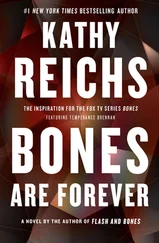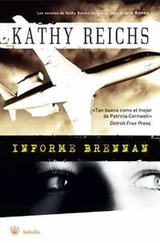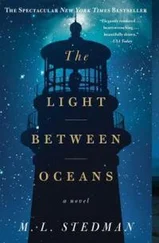“Bleached hair, a dark complexion, and a Spanish note in her purse.”
“Skinny thinks she’s from south of the border.”
I nodded.
Pete chuckled and shook his head. He’d met Slidell, knew how pigheaded the man could be.
The clamor of voices hushed. Then a multi-throated groan filled the room. Some sporting event was not going well for the home team.
Pete’s ribs were stripped and stacked when he laid down his utensils and wiped his mouth.
“Can I roll something by you?”
“Sure.”
“I have a friend, Hunter Gross. I don’t think you know him. His nephew, John, is a marine second lieutenant.”
“Semper fi.” I snapped a salute.
Pete had served in the Corps, still kept the Marine flag on a small stand in his office. Every November tenth, he celebrated its birthday with his old OCC buddies.
“Until a few months ago, John was serving as a platoon leader in Afghanistan. As I understand the story, he and his men were ordered to search a village.” Pete stopped, an odd expression on his face. “I’m not sure of the details, but the kid’s been accused of murdering unarmed civilians.”
“Jesus.”
“Hunter says no way he’s guilty.”
“Your friend. The uncle.”
“Yes.”
“What’s your take?”
Pete shrugged. “I’m not sure what to think. Hunter says the kid’s a good marine, had plans to make a career of it, but I don’t know him.”
“Where is he now?”
“Cooling his heels at Camp Lejeune pending completion of an inquiry.”
“Relieved of duty?”
Pete nodded.
“Hard.” For something to say.
“Yeah. Hell on the family.”
Cold-blooded killer? Incompetent leader? Good soldier, bad decision in the heat of battle? Tough one.
In the same place Katy was posted.
Pete bunched and tossed his napkin. Looked at me. Read my mind.
“You’re thinking of Katy, right?”
I didn’t respond.
“Katy’s a private. She won’t be leading anyone anywhere.”
“She’s in artillery.”
“Behind the lines.”
“Launching rockets at people who hate us.”
“Not everyone in Afghanistan hates Americans.”
“I know. But life’s so . . . unpredictable over there. She could be killed on her way to breakfast.”
“So could I.”
“You know what I mean.”
“Katy is a survivor.”
He said it with such confidence I could almost believe him. Still. The images. Katy lying by a burning Humvee on a bleak desert road. In a body bag.
Like the girl in the cooler.
The hit-and-run victim had a mother somewhere, wondering where she was. Why she wasn’t calling. Was someone assuring her that her little girl was well?
I gulped the last of my Perrier, now mostly melted ice.
“My car—”
“Off we go!”
Pete pantomimed writing. April and her teeth reappeared with the check.
We did our usual lunge. Pete got there first, paid cash, including a tip that could have financed a presidential campaign.
Five minutes of Rihanna, and we were at the courthouse parking deck. I got out and circled to Pete’s side of the car. He lowered his window.
“So. Tomorrow we’re officially free.” Christ. Did I really say that?
“Yeppers.” Equally lame.
We shared a clumsy through-the-opening hug. Lasting a moment too long?
“All the best to you and Summer.”
“Thanks. Keep in touch?”
“Of course.”
“Do you want me to wait until you’re wheels-up?”
“I’m a big girl.”
“But lousy with keys.”
I dug out and dangled the spares from my desk. Returned his loaner.
Then Pete was gone.
My purse was still in the Mazda. The hated shoes.
Below, passing vehicles made soft whooshing sounds on Fourth Street. In the distance a drunk warbled “Lucy in the Sky.”
I dropped one set of keys into my purse and pulled out my phone.
Slidell answered after two rings.
“Yo, doc.” In the background I could hear the play-by-play of a baseball game.
“How’re you coming on the hit-and-run vic?”
“Tomorrow—”
“Have you canvased the neighborhood? There are a few shops along Old Pineville Road.”
“Like I said—”
“What about body shops?”
“I’m on it.”
“Clothing and boot shops?”
“On it.”
“Clinics?”
No response.
“Did you drop by St. Vincent de Paul?”
“On it.”
“On it when?” Slidell’s cavalier attitude was pissing me off.
“Look, we got nada. We’re going to get nada. If she’s illegal, no one’s gonna come forward. If she’s on the stroll, no one’s gonna come forward.”
Deep down I suspected Slidell was right. Still.
“How about running her picture in the paper?”
“Did you hear what I just said?”
“Can’t hurt, right?”
“Neither can tossing goat turds into the sea.” Deep sigh. “Look, I ain’t blowing you off. A few hours ago I caught an MP with ties to the mayor. Single mother, two kids, steady job at the Rite Aid. Gone. Chief says I got no life till the lady is found.”
The line went silent.
I sat, irritated but not totally discouraged. Though sometimes slow out of the gate, Slidell usually came through in the stretch. Unless preoccupied. Enter high-pressure missing-person case.
I pictured the girl with the pink barrette.
I pictured Katy the last time I’d seen her, at Fort Hood the day she graduated from basic combat training. Instead of barrettes she wore camouflage fatigues, boots, and a black beret. Her body was rock hard, her long blond hair tightly knotted at the nape of her neck.
Throughout that day, I’d fought back tears of pride. Tears of dread.
The same dread I felt sitting alone in that parking deck.
What if Katy disappeared and no one bothered to find her? To determine if she was dead or alive?
The human brain is a switching station that operates on two levels.
As my hand turned the key, my higher centers sent up images of a lonely stretch of two-lane.
Instead of going home toward Myers Park, I wound through uptown toward I-77.
Took the southbound ramp.
Headed toward Woodlawn.

THE STRETCH OF OLD PINEVILLE Road I was driving had once been the main route from Charlotte to Pineville. But the town and the road had both seen better days. And busier. South Boulevard, to the east, now had all the action, and few motorists made this strip their final destination.
I flicked on my turn signal and tapped the brakes. Double beams bore down on my trunk. A horn blared and a large mass swerved around me, taillights like glowing red eyes in the darkness.
After reversing direction, back toward uptown, I pulled to the shoulder and studied my surroundings. No sidewalks. No traffic signals. Deadly for pedestrians.
Off my passenger side ran a broad strip of weeds and scrub vegetation. Beyond that, the tracks of the Lynx Blue Line, the first and only spur on Charlotte’s light-rail system.
Had the girl come here by train? To what station? Woodlawn? Scaleybark? If she’d descended from a Lynx platform, might someone have seen her?
Had she come by car? On foot? Was she alone? With a companion? A kindly stranger who’d offered a lift? A burger? A drink?
And, above all, why? Why was she here? Larabee was placing her time of death at somewhere between eleven and two. What had lured a teenage girl to this isolated spot in the middle of the night? With no jacket in the chilly weather.
I knew the CSU techs had photographed and bagged every scrap of evidence. So why was I here after my long, frustrating, blister-raising day?
Читать дальше











